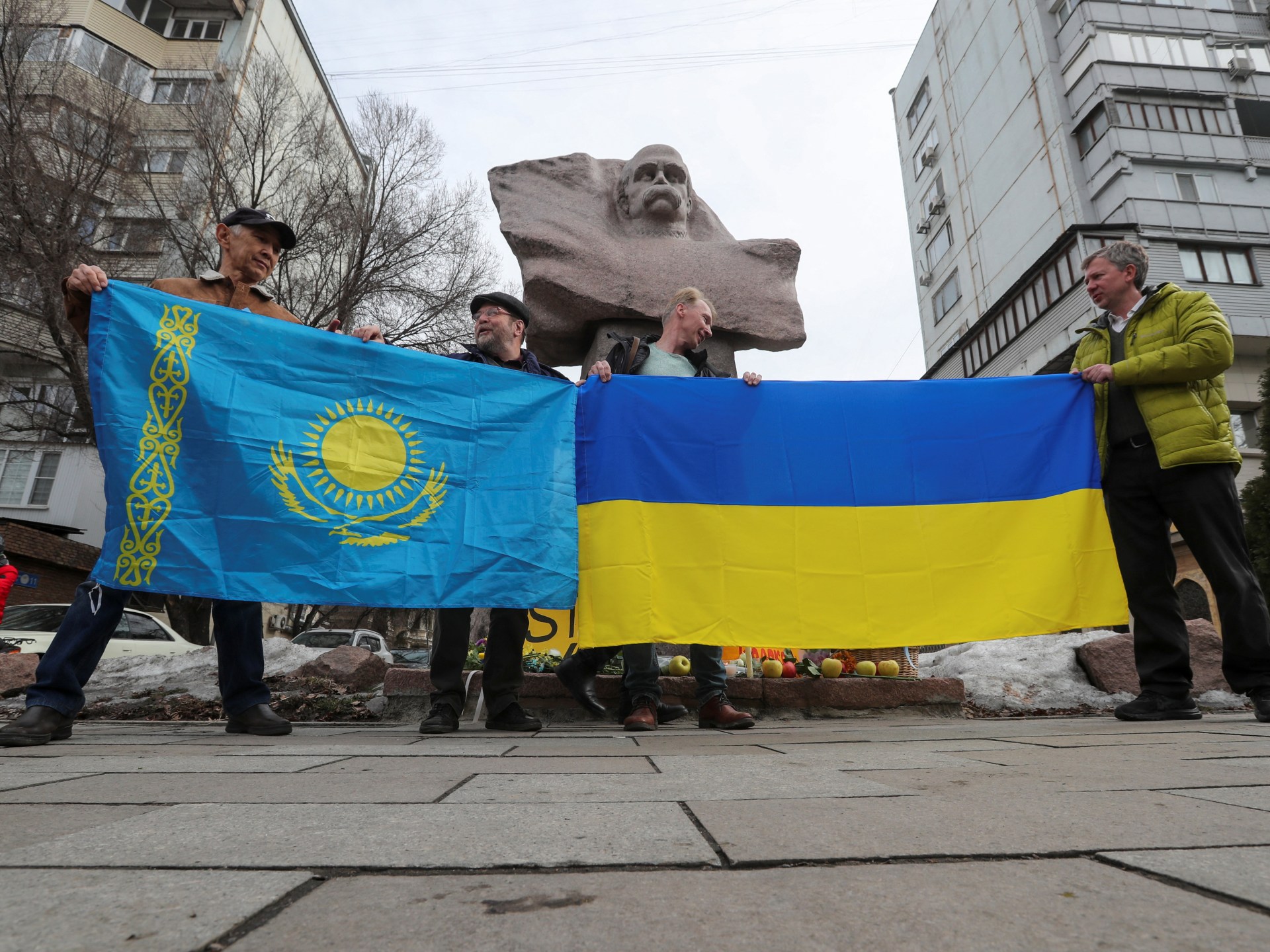The Kazakh leadership, which has so far succeeded in dealing with various internal political divisions, has been able to thwart all attempts to create chaos on Russia's southern border.
The report warned that anti-Russian calls could influence public opinion in Kazakhstan, despite all official efforts to clarify the facts.
He accused the Ukrainian regime of dealing with representatives of the Kazakh opposition present in Ukraine in order to influence public opinion in Kazakhstan.
Information War
The report pointed out that Kiev uses Ukrainian citizens working in Kazakhstan who are qualified to fight information wars, whose first task is to criticize and distort the image of the "Russian military operation", a step in which Ukraine succeeded.
One manifestation of this anti-Russian action, he said, is the intensification of social media and the media to promote the idea that "Kazakhstan is the next target of Putin's aggression" after Ukraine.
According to the report, the Ukrainian strategy has paid off, as many accounts of Kazakh citizens spoke of Putin's clinging to power to the point that he turned Russia into an "aggressive and hardline authoritarian" state, which means that Kazakhstan is obliged to develop its military capabilities in order to resist any possible Russian aggression.
The report cited statements by Ukrainian leaders inciting Kazakhs against Russia, including the head of Ukraine's National Security and Defense Council, Oleksiy Danilov, who earlier said Kazakhstan was the next country Russia wanted to control.
warning
He stated that the campaign against Russia in Kazakhstan did not succeed in mobilizing Kazakh volunteers to die for President Volodymyr Zelensky, except for what he described as "anomalies."
According to the report of the Russian Strategic Center for Cultures, the failed policy of recruiting mercenaries was compensated by a media mobilization against Russia aimed at intimidating the citizens of the Republic of Kazakhstan from Russia's intentions.
The report warned that attempts to persuade Kazakhs to be anti-Russian have been relatively successful only on social media, but could extend to other sectors if left unchecked.

